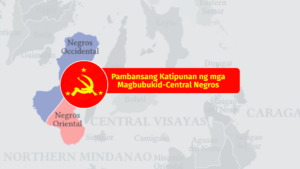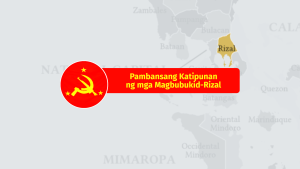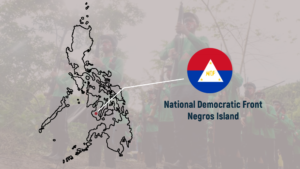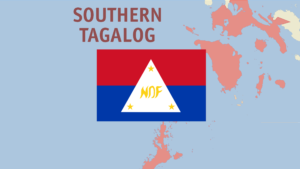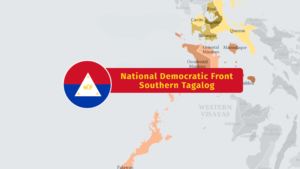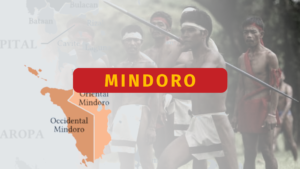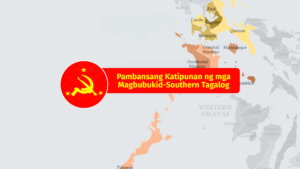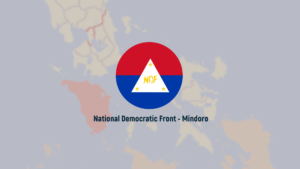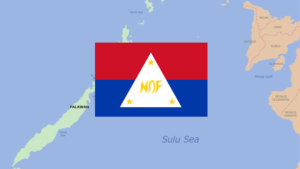Duterte's SONA 2019: Full of fanfare, full of lies and full of himself
The recent State of the Nation Address delivered by reactionary president Rodrigo Duterte did not disappoint. It had the expected Duterte fanfare of finger-pointing, cuss words and misogynistic remarks, threats of and provocations to violence and hollow attempts to misrepresent himself as different from power-hungry bureaucrats. And yet, amidst all his demagogical talk, he failed to distract the Filipino people from gleaning the truth behind his words. Duterte characteristically used excuses and misdirection, cloaked by pretentious braggadocio, to intentionally not address the current state of the Filipino people.
Delusional Demagogue
Duterte exposed his disregard for the interest of the people on issues he addressed, albeit barely. He made sweeping conclusions regarding particular issues without considering the situation of the majority of the population, especially that of the countryside. For example, he boasted about interconnecting the islands by air, land and sea but mentioned not a thing about agricultural mechanization. Instead, he pushed for the ratification of a National Land Use Act so that “(The government) can meet the demands of new investors.” The vaguest notion of genuine agricultural land reform was unheard of in Duterte’s speech.
He even lied through his teeth when he said that the Rice Tariffication Law will “safeguard the livelihood of small farmers through the provisions of modern farm equipment and machineries, seeds and credit, and extension services.”Even GRP agencies report that farm gate prices promptly decreased up to 9% since its enactment is proof that this law will have disastrous effects on rice farmers, rice mill owners and workers, employees of the National Food Authority and the rice-eating public.
Regarding disaster preparedness, he talked about the creation of a government agency. Yet, he remained mum about calamity funds being held up indefinitely because of a corrupt bureaucracy. For instance, 10 long months after Typhoon Ompong’s onslaught, victims are yet to receive any significant government assistance. Farmlands and irrigation systems remain unrepaired. In Ilocos region alone, around 301,399 families were affected while 80% of the crops were devastated.
The windbag president also repeated another round of promises to teachers, nurses and government workers. This round thus adds to the list of yet-to-be-fulfilled promises or half-baked legislation that are as numerous as his swear words and anti-women remarks. In Region 1, for instance, the fulfillment of the long promised wage hike amounted to a Php30 and still renders it the lowest minimum wage among regions.
Meanwhile, access to the tobacco funds from the Tobacco Excise Tax Acts had become a pipe dream for the lot of Ilocos region where tobacco is both a major crop and a major source of endless exploitation. This year, Php15.8 billion is allotted to tobacco planters from the excise tax but, as experience shows, would surely be used again for patronage politics. It is yet to directly benefit the tobacco faming families themselves proof of which is the families’ impoverished state long after their enactment in 1992 and 1996. Fund dispersal is mired with corruption while those responsible for misusing the funds are yet to answer for their actions.
Duterte and his imaginative writers did render a proportionate emphasis on poverty, even if the data is more on the imaginative side. They announced that poverty incidence was reduced from 27.6% in 2015 to 21% in 2018 then put the total poor to a mere six million Filipinos. To address this, they said that, “(The government pursue) tax reforms to fund (its) poverty reduction programs.” After Duterte’s infamous TRAIN or Tax Reform Acceleration and Inclusion Act, a law even he could not brag about in this year’s address, it would take a lot more than creative explanation before the Filipino masses believe that more taxes is the way to alleviate poverty.
From Bad to Worse
Duterte’s line of thinking could be summed as such: There are issues to be addressed and he does so by merely shifting the blame on his subordinates. If not, it is the fault of the people themselves. He thinks corruption is rampant because of the sectoral interests of some officials or the pervasive greed in the bureaucracy. He does not see corruption as a systemic problem endemic to bureaucrat capitalism. Bureaucratic red tape, he believes, is because the Filipinos are unassertive. To resolve such problems, he turns to militaristic or violent approaches such as the appointment of more military personnel to civilian positions, threats to kill uncooperative officials or encouragements for the civilian population to use violence. With the last, in a truly Digong fashion, he promised to intervene in behalf of whoever slaps a government employee believed to engage in corruption. Drug abuse is to be resolved by the return of the death penalty.
But the people’s attention is called to a flagrant irony. Despite his frothing-in-the-mouth talks of violence and murder, he turns into a docile pet when it comes to the sea dispute with China. He says this is to ‘avoid’ conflict, as if such has not been in existence ever since imperialist China aggressively claimed territories of neighboring countries through an outdated nine-dash line of their own invention. Duterte turns a blind eye on the said conflict as if it has not been exponentially worsened ever since China dismissed international rulings that favor the Philippines and other claimants and instead built military and naval installments in the disputed areas.
Indeed, it is a matter of Duterte picking on someone not even his own size. More importantly, it is a matter of how Duterte stands to benefit economically and politically from kissing imperialist China’s bottom, making him a bottom-feeder himself. In his fourth nation’s address, he dared omit any explanation about the onerous debts to China. The explanation might be missing but the message is clear: he does not care about the people’s questions and does not hold himself accountable for betraying national patrimony, sovereignty and independence that comes as conditions of the said debt.
The real state of the nation is that a vast majority of the population experiences systemic exploitation and oppression in the hands of an elite few. Far from addressing the social ills and their roots, Duterte’s solutions only serve to worsen the situation of the people. For example, the creation of more government agencies and laws (that then creates even more agencies) paves the way for more graft and corruption and generates positions that he can manipulate. Aside from more taxes and a land use law, Duterte set his administration to enact a Fire Protection Modernization Program, a Government Rightsizing Bill (which would lay off a significant number of government employees) and the creation of separate departments for overseas workers, for disaster resilience and for water regulation.
More disturbing is his moves towards further militarization as his term proceeds to its second half. He pushed for the return of mandatory ROTC or Reserved Officers Training Corps for the last two years of high school and the ratification of a National Defense Act. He sought to condition the people for the establishment of an even more militaristic cabinet because, as he said, he prefers compliant officials that are quick to obey his commands.
Such does not bode well for the people continually victimized by the state. Even before the establishment of the Task Force to End Local Communist Armed Conflict, progressive forces and the rest of the populace in the Ilocos region experience Red-tagging, surveillance, harassment and prosecution based on trumped-up charges. Further militarization can only amount to intensified violations of the people’s human rights.
The 81st Infantry Battalion continues to encamp in the middle of civilian population. Much like their Chief-of-Staff Duterte, it picks on the defenseless by coercing around 80 civilians to surrender as members of the New People’s Army. And also like Duterte, such aggression against civilians only underscores its failures against the Red fighters waging a just and revolutionary war in the countryside.
| I |
t can thus be said that Duterte’s job is indeed far from over. The people can expect intensified exploitation of their hard work and repression of their rights. He will employ heightened political manipulations and state fascism to ensure that he stays in power.
But the Filipinos will neither waver in determination nor cower in the face of a fascist regime. While Duterte unconvincingly quacks about his disapproval rating being at a mere 3%, multitudes will show him that enough is enough. They are set to come together to overthrow the self-promoting president that is causing unending spikes in basic goods and commodities, insecure means of livelihood and criminal neglect of the agricultural sector, to name a few. The people’s awareness must be raised to engage them to organize and mobilize against Duterte and his many economic and political attacks. History and the people themselves will teach Duterte an important lesson about a nation’s collective ire and action against a tyrant like himsel

